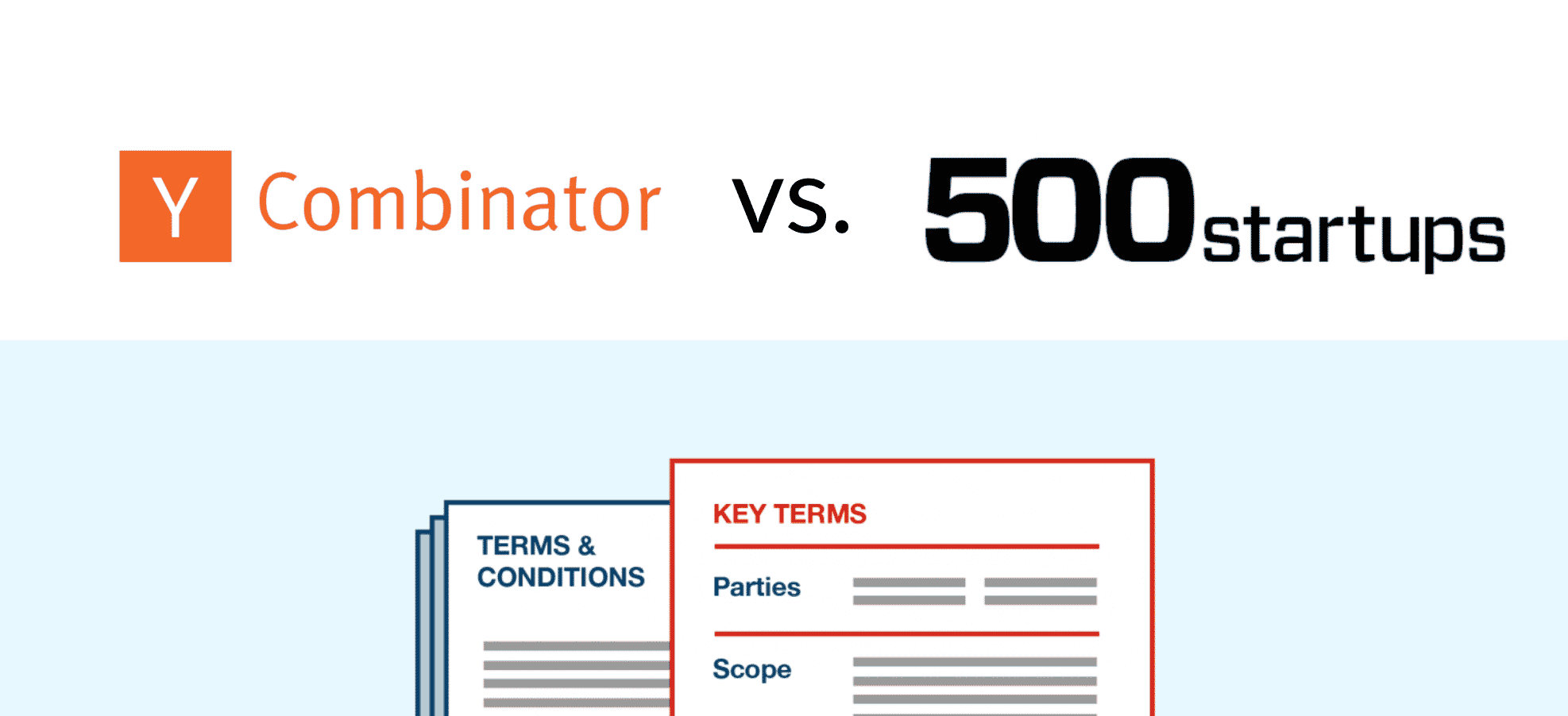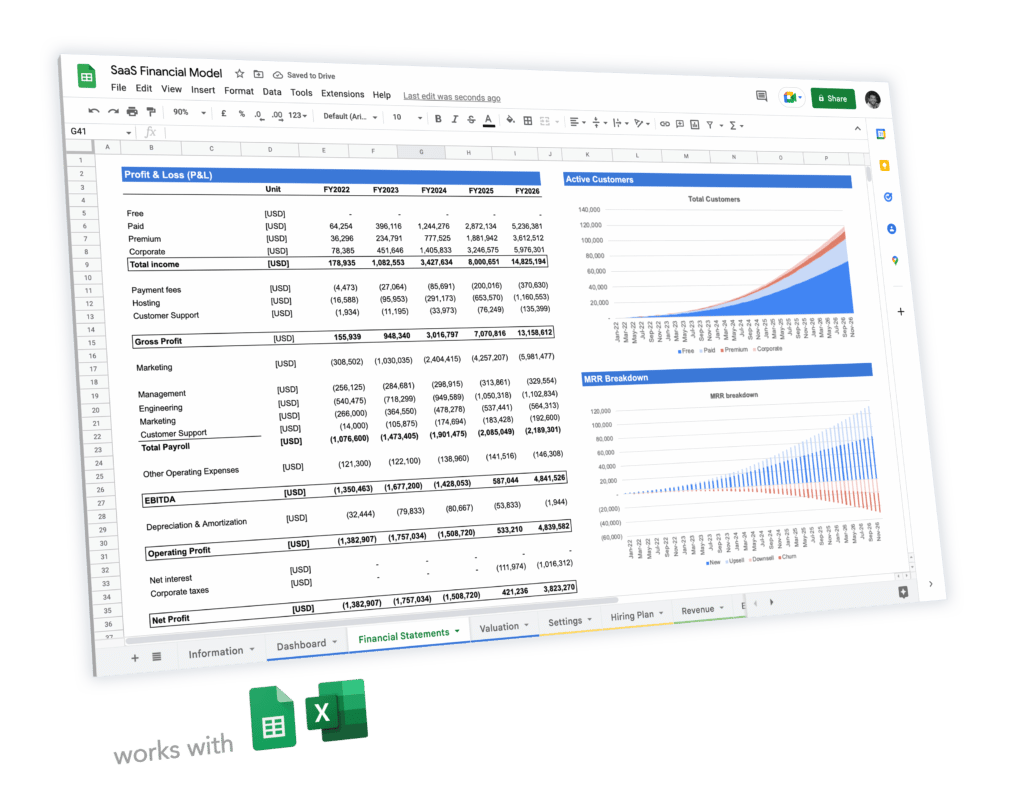SAFE vs. KISS: Key Differences. What’s Best For Your Startup?

Convertible securities have become increasingly popular for early-stage startups that need to raise seed funding to the point here YCombinator and 500 Startups both decided to create their own financial instruments: SAFE and KISS notes.
Both are an alternative to convertible notes, and standard priced equity rounds. Yet, whilst they’ve been designed to make seed funding more accessible, quicker, and easier, SAFE and KISS have clear differences.
How do they compare? What is best for your startup? In this article we’ll cover:
What Is SAFE?
SAFE (short for “Simple Agreement for Future Equity”) is a financial instrument that allows investors to invest in early-stage startups. It has been created in 2013 by the YCombinator team as an alternative to another similar instrument: convertible notes. For more information on convertible notes for startups, read our full guide here.
SAFE gives investors the right to convert their SAFE notes into shares at a future fundraising (priced) round. Therefore, when investors invest with SAFE, they aren’t given shares yet. Instead, they get a warrant: a right to convert their warrant (SAFE) into shares at the next fundraising round.
The number of shares a SAFE investor is allowed to convert its SAFE notes into is a function of a number of factors: the discount rate and/or the valuation cap, if applicable.
Yet, a SAFE note might not have a cap and a discount. Instead, there are 3 types of SAFE notes:
- Discount rate and valuation cap. Here, the conversion price is the lesser of the valuation cap or discount
- Discount, no cap
- No discount, cap
What Is KISS?
KISS (stands for “Keep It Simple Security”) was created by 500 Startups in 2014. Like YCombinator with their SAFE notes, KISS aims to simplify and standardize seed funding for startups.
Like SAFE, KISS is a convertible security: the security converts into equity (preferred stock) at a given qualifying event. As such, both SAFE and KISS delay the need for a valuation and expensive legal costs to issue preferred shares.
KISS exists in two forms:
- Debt KISS: the note has accruing interest and a maturity date
- Equity KISS: the note doesn’t have any interest nor a maturity date (like SAFE)
As for SAFE, KISS also convert into preferred stock based on the discount rate and valuation cap agreed on within the KISS legal documentation.
Both notes are a very attractive form of financing for early-stage startups that need to raise seed funding. Indeed, it’s really easy to issue these notes, the documentation often is only 1-2 pages, and access to funds is much faster vs. priced equity rounds.
SAFE vs. KISS: Key Differences
SAFE and KISS are very similar instruments. Both are convertible securities, and convert into preferred shares based on a given valuation cap and discount rate.
Yet, both instruments also have clear differences, which we have listed in the comparison table below:
| SAFE | KISS | |
|---|---|---|
| Valuation cap | Depending on the SAFE type | Yes |
| Discount | Depending on the SAFE type | Yes |
| Priced equity round | Automatic conversion to preferred stock, as soon as a priced equity round occurs | Automatic conversion to preferred stock, as soon as a priced equity round occurs only if the equity round is above a specified amount (for example > $1 million) |
| Sale of company | Option to (i) get paid the original investment or (ii) to convert into common shares at the cap | Option to (i) get paid a multiple of the original investment or (ii) to convert into common shares at the cap |
| Maturity | None | Converts into preferred shares at the cap |
| MFN clause | Optional | Yes |
| Participation rights | After the next equity funding round | Participation rights in all future equity funding rounds |
| Transferability | Investors can only transfer to their affiliates | Investors can transfer their notes to any investor |
What’s Best For Your Startup?
Generally, SAFE notes are more startup friendly vs. KISS, which are preferable for investors. Therefore, if you have to choose as a startup, go for SAFE.
Of course, if you have the choice between 2 term sheets, one involving SAFE and the other KISS, make a decision based on the specific terms that you are being offered.
Why is SAFE more startup friendly?
As shown in the table above, SAFE and KISS have slight differences. Some of these are KISS clauses that benefit investors, they are:
- Sale of company. In the event of the sale of the sale of the business, KISS investors have the option to either convert their notes into common stock (like SAFE) or get paid a multiple of their investment. Instead, SAFE notes investors either convert or get paid back their investment (no multiple)
- Participation rights. SAFE and KISS investors both have preferential rights to invest in future rounds. In short, they can invest in future rounds before any other new investor(s). Yet, KISS allows for participation rights for any future rounds whilst SAFE excludes the next funding round (the one when notes convert into equity)
- Most Favoured Nation clause (“MFN”). MFN is a clause that protects investors in case there are future rounds with better terms than the ones they already agreed to. Let’s assume investor A purchases a KISS note with 10% discount yet another investor 6 months later gets a 20% discount. With MFN, investor A have a right to the same 20% discount. KISS notes automatically include a MFN, yet this is optional for SAFE.


 5-year pro forma financial model
5-year pro forma financial model 20+ charts and business valuation
20+ charts and business valuation  Free support
Free support